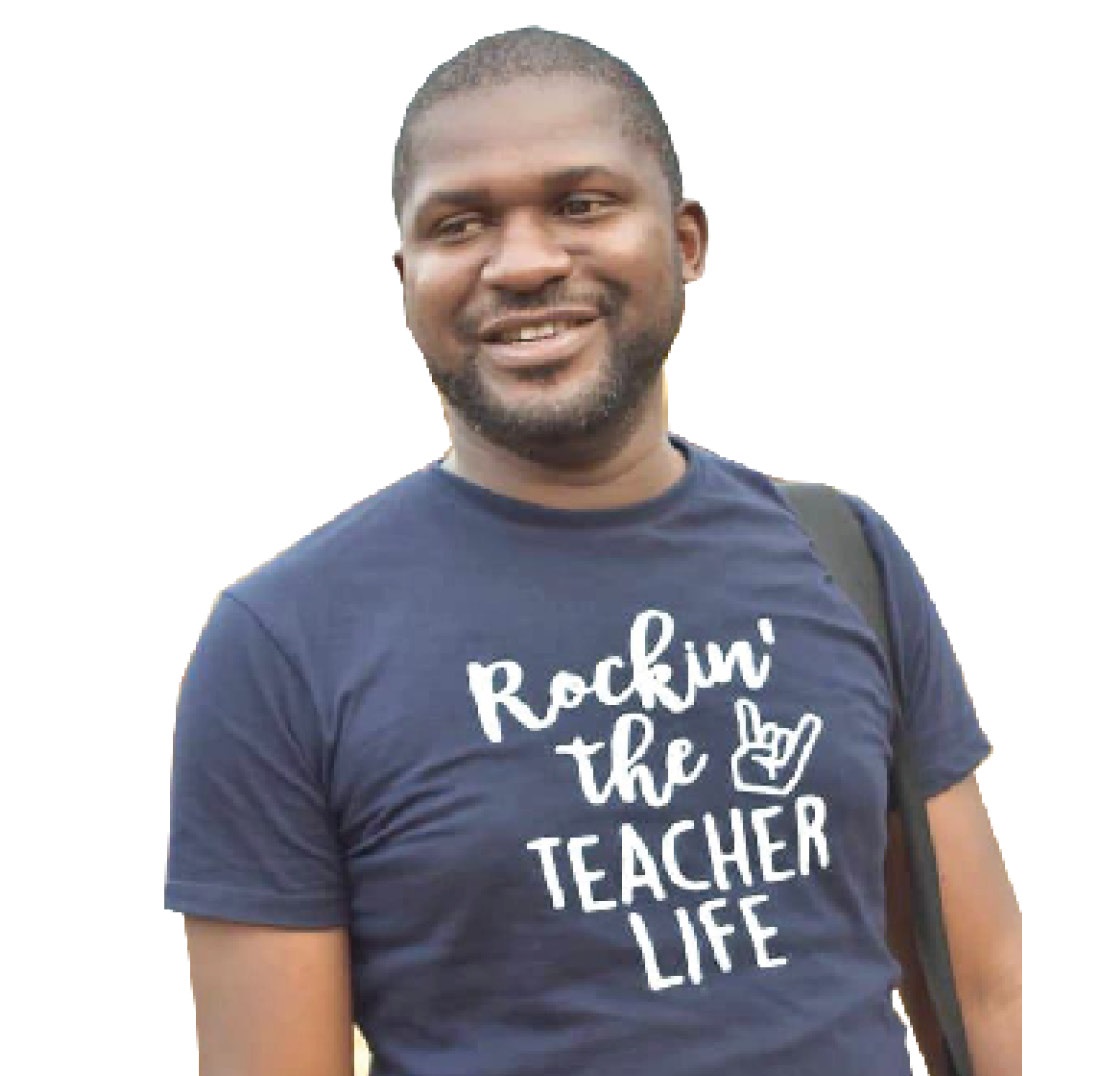Namse Udosen is an author, teacher and founder of Tanar Kaduna Bookathon, a platform that seeks to create books for children. Here, he talks about the project, his experience in the Teachers’ TV Reality Show and more. Excerpts:
Bookshelf: You are the founder of Tanar Kaduna Bookathon. What is the project about and what triggered it?
Namse Udosen: Tanar Kaduna Bookathon is an event that seeks to harness the talents of writers, artists and graphic designers toward creating books for children. I am the curator of the project and got inspired when I read about Bookdash in South Africa and Flipleaves in Lagos. I am presently the editor for the Flipleaves project.
Nigeria has one of the highest illiteracy rates in the world and you can’t divorce that from the unavailability of books for early years education in the country. I volunteer to teach at some public schools and I am amazed at the lack of basic reading materials for the pupils. I also wonder if people do not see the correlation between availability of books and Literacy.
Bookshelf: How have schools and individuals responded to this project so far?
Udosen: Many creative individuals have shown interest in volunteering their talents to make books for Children. However, funding has been slow but that not withstanding, the project is still on course. We have had to postpone but we will still get it done.
Bookshelf: Why is it focused on Kaduna alone?
Udosen: I currently work and live in Kaduna. There is no funding to bring writers and other creatives from outside Kaduna. However, the works would be open sourced and available to users globally.
Bookshelf: What major challenges have you and your team encountered in providing this service in Kaduna?
Udosen: The major challenge is funding. I have been handling all the operational costs from my personal resources. We also have not received the quality of stories we want. I even had to hold an online master class on writing for children.
Bookshelf: So far, what successes have you recorded and in what areas?
Udosen: We have made a little success. Two people have indicated interest to support. We are finalizing on the venue for the maiden event, after which we would go public.
Bookshelf: You are known to be a passionate teacher. You were part of the ongoing Teachers’ TV Reality Show until you were evicted. How would you describe the experience?
Udosen: (Laughs) It was an amazing experience, although the show was short of what I expected. It was great to meet and interact with teachers from different schools across Nigeria. Those interactions behind the cameras were my high points of the event. Other than that, every other thing was just a reinforcement of the traditional stereotype of a Nigerian teacher. I thought the show would change the prevailing narrative, but from the first day when we were asked to debate on who are better teachers between males and females, I knew it was off. I was expecting more robust conversations on contemporary issues in education. I hope they do better next time.
Bookshelf: You were evicted from the show for your manner of dressing and conduct, among other issues. What do you have to say about this?
Udosen: On dressing, we were all given T-shirts to wear throughout all the tasks. I wore my cap backwards in the course of one task and to see the work properly. In my personal opinion, wearing a cap backwards is part of the informal dressing that goes with a T-shirt. We were specifically told they want to see the fun and laid-back side of teachers that people don’t get to see. We were to demystify the thought that teachers are boring.
On conduct, the judges failed to specify what constitutes bad conduct. I didn’t fight, quarrel or use offensive language. I also didn’t sexually harass anyone.
We were kept in pitch dark rooms without light and we were expected to come out early in the morning for sports. I actually was the first to get dressed but in the spirit of brotherhood, I had to wait to help my roommates get prepared. This can be verified. The organizers were late for most tasks and kept us waiting severally. They were more interested in how the recording went.
Bookshelf: A couple of years ago you authored a book titled ‘Fundamental Etiquette for Young Nigerians’. What is the update on its success?
Udosen: It seems like a decade already. The book is still selling across Nigeria. I get calls from people in distant places appreciating the content of the book. That gives me joy. I also have done some readings in Kaduna.
Bookshelf: What are you working on at the moment?
Udosen: I collaborated with Nahida Esmail from Tanzania and late Wakini Kuria of Kenya on a classic African Children’s book. It’s the story of a brave rat.

 Join Daily Trust WhatsApp Community For Quick Access To News and Happenings Around You.
Join Daily Trust WhatsApp Community For Quick Access To News and Happenings Around You.


